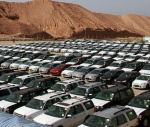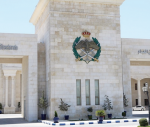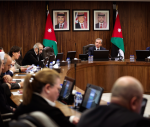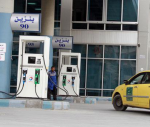You are here
A double betrayal for refugee children
Sep 18,2017 - Last updated at Sep 18,2017
From Syria to Myanmar, children caught in the crossfire of conflict are victims of a double betrayal.
Forced out of their homes in the biggest refugee crisis since World War II, they have now become the innocent victims of a broken promise that they would, even as refugees, be able to attend school. And, even as their circumstances worsen and their numbers increase, their plight is going all but unreported.
The loud cheering that has greeted past humanitarian aid pledges has given way to a shameful silence.
As the news cycle churns on and coverage shifts to more sensational events, the 75 million children and young people worldwide whose education has been interrupted by forced displacement become less likely ever to return to the classroom.
Perhaps it is no accident that the promise of education for all school-age refugees is not being fulfilled. No amount of goodwill can overcome an international aid architecture that remains stacked against children.
Education spending is still caught between humanitarian aid, which focuses on the most basic necessities for survival, such as food, shelter and medicine, and development aid programmes, which are planned over years and are slower to respond to crises.
As a result, education is often treated as a lower priority, the last to be funded and the first to have its financing redirected.
A case in point: the UN Emergency Relief Coordinator, recognising gaps in aid spending, has, to its credit, just allocated an additional $45 million to support relief operations in Afghanistan, the Central African Republic, Chad and Sudan. But these funds, while vital, are not nearly sufficient, and only a tiny fraction will go towards education provision.
Meanwhile, organisations like the United Nations Refugee Agency (UNHCR), the UN Office for the Coordination of Humanitarian Affairs (OCHA), UNICEF and UNESCO are doing laudable humanitarian work, but remain underfunded.
Last year, the Education Cannot Wait (ECW) fund was created to close the financing gap and ensure that education is protected when disaster strikes. It was a heartening development, supported by all UN agencies. But the disheartening reality is that financing has not kept pace with need.
Yet funding headwinds have not dampened ECW’s ambition under its new director, Yasmine Sherif. The young fund has swiftly marshalled its initial $120 million to promote quality education for 3.2 million displaced children and, in turn, to support 17,000 teachers, with investments in and around Syria, as well as in Chad, Ethiopia and Yemen.
Working with a network of partners focused on helping Syria’s refugees, ECW is addressing structural challenges, such as teacher remuneration and certification processes, while helping to create a new curriculum based on coexistence.
Together with Lebanon’s Ministry of Education and Higher Education — a department under stress from the influx of a half-million Syrian refugee children — ECW is also helping to fulfil the goal of delivering a quality and relevant education for all young people aged 3-18.
Such innovative initiatives represent important progress. But meeting the needs of the children who have been left out and left behind will take far more funds than ECW so far has at its disposal.
In Syria, a devastating and protracted civil war has left more than 7 million children in need of humanitarian assistance, and some 2.5 million without homes.
In February 2016, the Supporting Syria and the Region conference in London attracted $1.4 billion in pledges for education, but only a fraction of those funds has so far made it to the frontlines. The country remains in ruins, and reconstruction is yet to begin.
Syrian refugee children in Lebanon are at the sharp end of this failure. To be sure, an innovative initiative to ensure educational access for these children — a two-shift school programme that uses the same classrooms as Lebanese children — frees up valuable space and materials, making it possible to deliver an education for only about $600 per pupil.
The goal is to provide 540,000 Syrian and vulnerable Lebanese children aged 3-18 some form of education this year, with 220,000 benefiting from the double-shift system.
Yet donors have contributed only $200 million so far — $100 million less than is needed. As a result, hundreds of thousands of vulnerable children could be left without access to education.
Already, Lebanon is being forced to make painful cuts and surrender precious ground. Jordan and Turkey, which have also embraced the double-shift model, are facing similar dilemmas.
Similarly, most of the 500,000 South Sudanese refugee children who have poured across the border into Uganda are unable to receive an education — despite the Ugandan government’s generous plan to provide them with places in schools — owing to a lack of funding.
Then there are the thousands of children who are being besieged in Mosul, Iraq; shelled in Sanaa, Yemen; and forced to flee into Bangladesh from Myanmar’s Rakhine State. And so the cycle of under-provision and despair continues.
Yet the problem extends beyond schooling. Despite major initiatives, such as the Platform for Education in Emergencies Response, aimed at linking young people to higher-education courses, thousands of qualified young people have been unable to secure college and university places.
This does not just undermine their own futures; it will impede their ability to use their skills to aid in their countries’ reconstruction.
People are not broken just by the wave that submerges the life vest or the convoy that does not make it to the besieged town. They are broken by the absence of hope — the soul-crushing certainty that there is nothing ahead for which to plan or prepare, not even a place in school.
The world’s refugee children typically lack passports that would enable them to cross borders more freely. But their real passport to the future is stamped in the classroom, not at a border crossing.
Infrastructure can be rebuilt. But children can never get back years of education they have missed.
We must act now to ensure that this young generation of refugees is learning, not lost. Only then can we provide a foundation for true reconstruction and unleash the hope that all children deserve.
The writer, former prime minister and Chancellor of the Exchequer of the United Kingdom, is United Nations special envoy for global education and chair of the International Commission on Financing Global Education Opportunity. He chairs the advisory board of the Catalyst Foundation. ©Project Syndicate, 2017. ©www.project-syndicate.org












